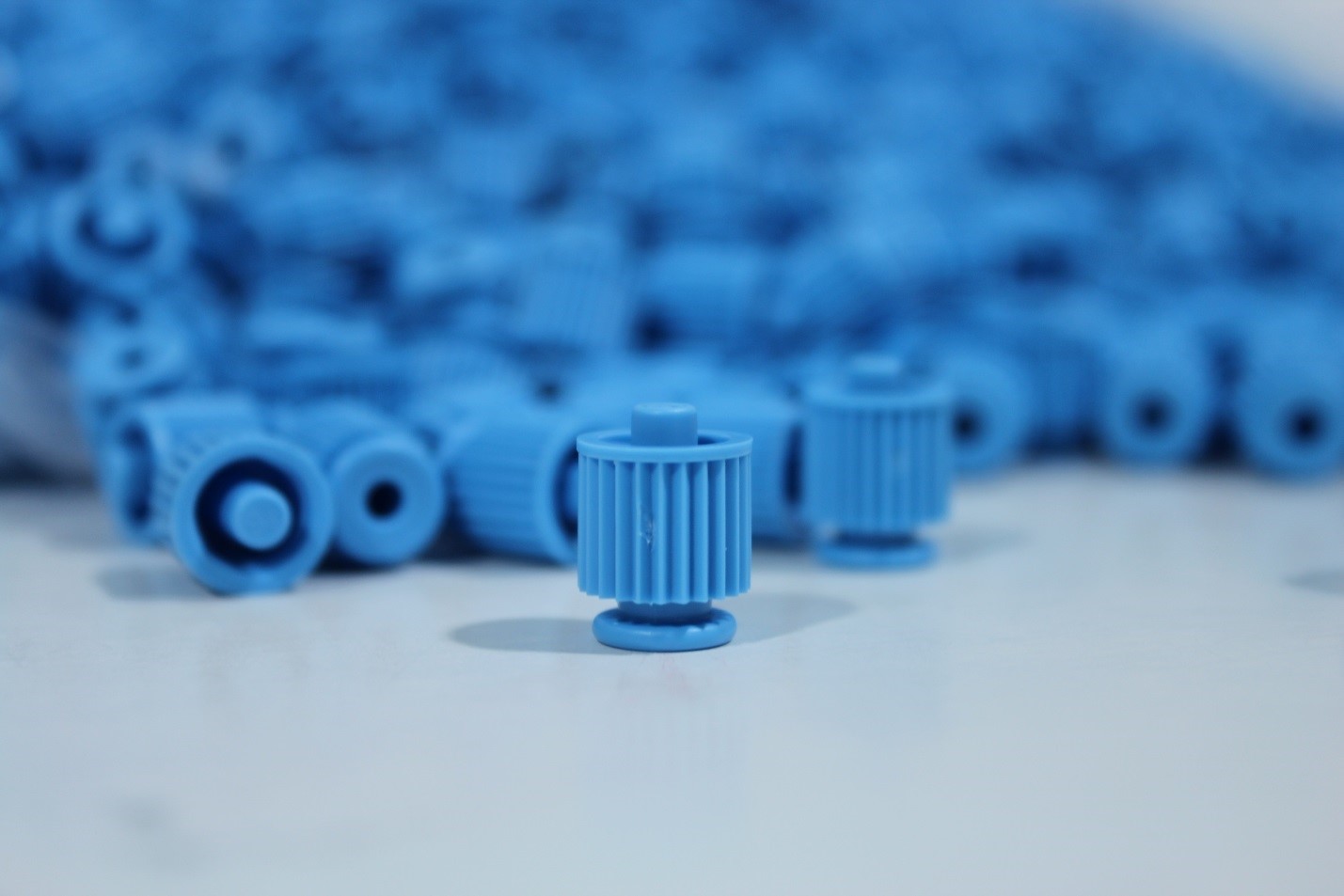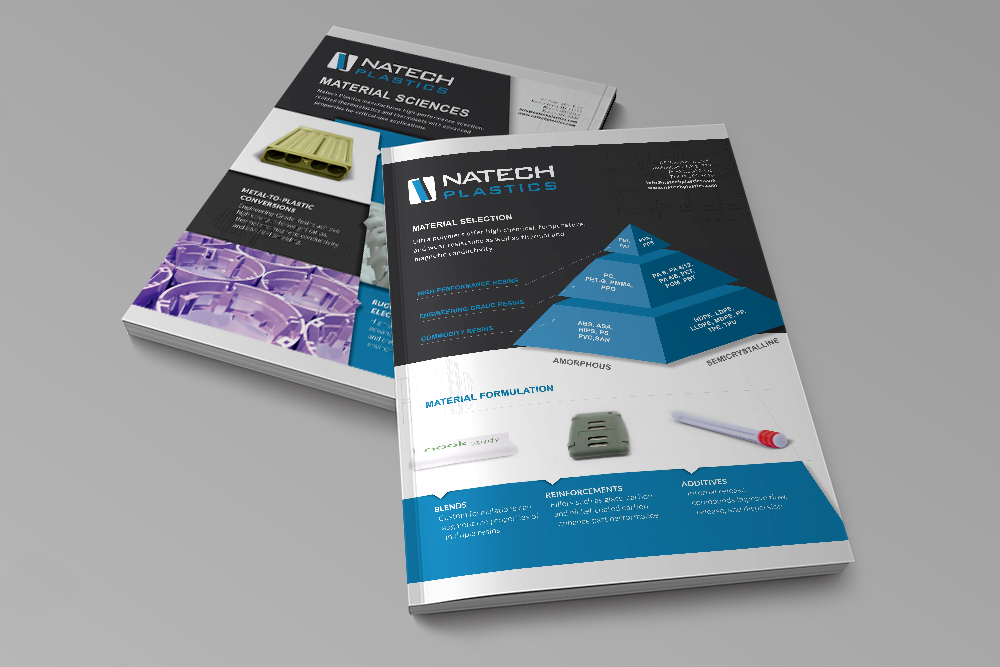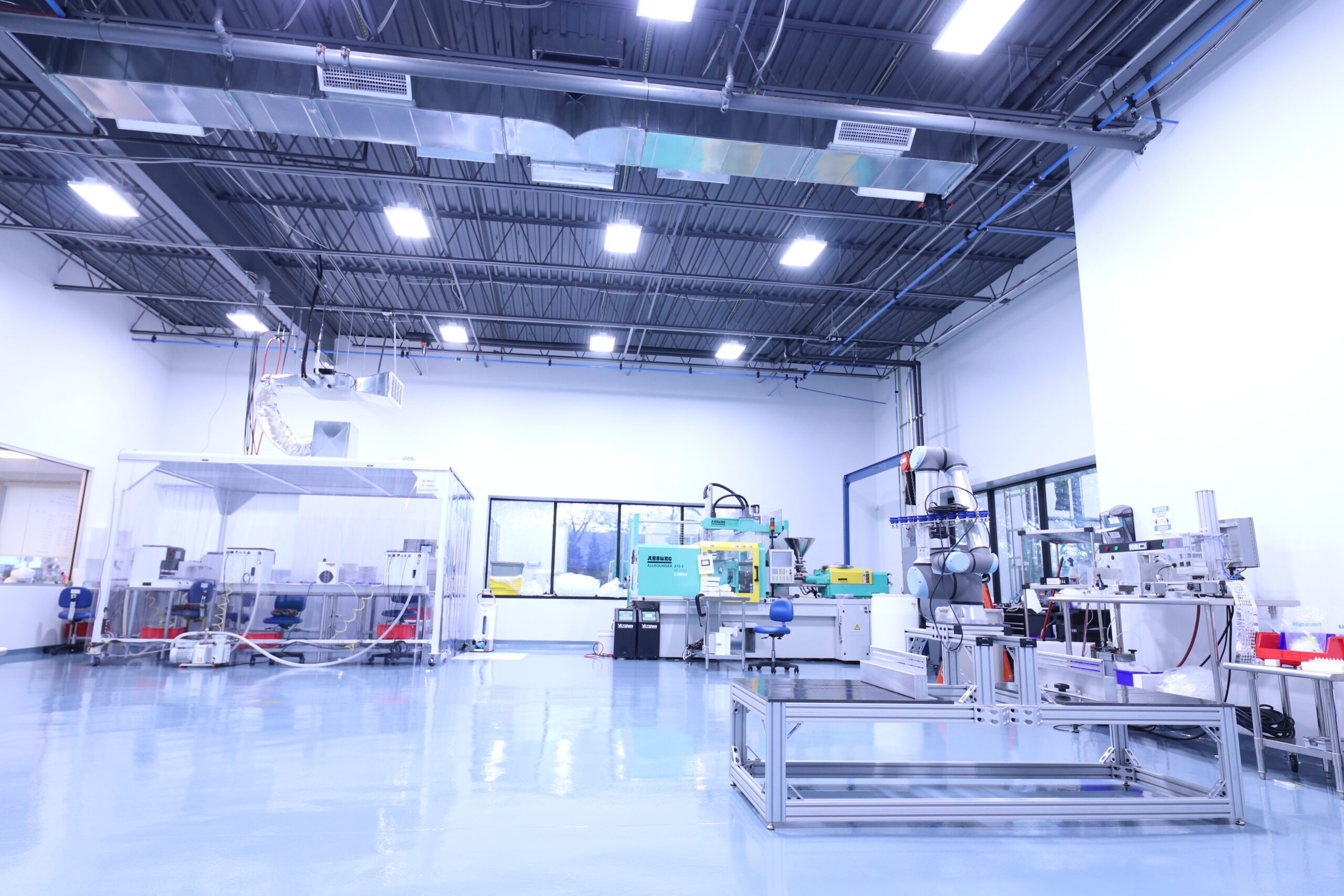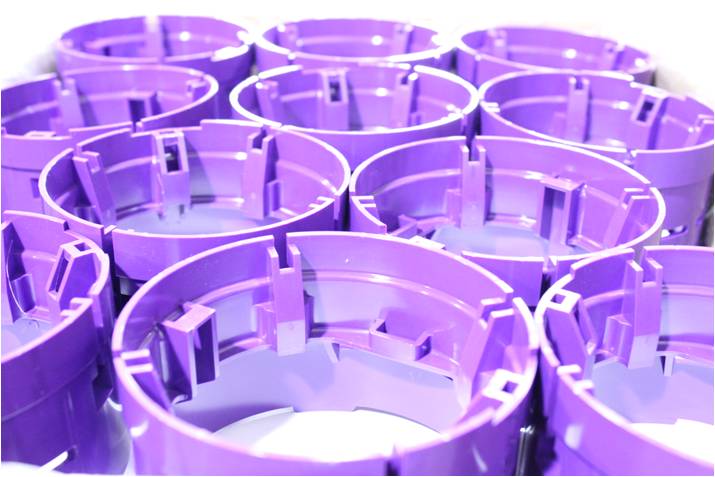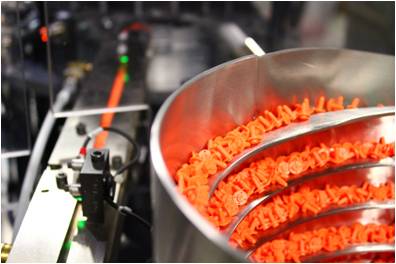Explore the benefits of high-performance resins and see if they are right for your plastic product.
Selecting the right resin can make or break an application. Usually, you should lean towards commodity resins because they are less expensive, more widely available, and less difficult to process. But some products may require or benefit from engineering-grade and high-performance resins. High-performance resins offer performance benefits that you can’t always find in commodity resins.
Plastics can be categorized as:
- Thermoplastics,
- Thermosets,
- and Elastomers
This article covers the thermoplastics family, the more commonly used plastics.
Commodity resins vs. Engineering-grade resins vs. High-performance resins
Commodity resins are a low-cost option that are easy to process and usually produced at high-volume for disposable items. The mechanical and chemical properties are typically not critical for its products. Some examples include polypropylene, polyethylene and polystyrene.
Engineering-grade resins are often used for durable products, industrial applications, and military products. Compared to commodity resins, they have better thermal, chemical, and mechanical properties. They are high strength plastics that are typically resistant to high temperatures and wear. Examples include ABS, nylon, and TPE.
High-performance resins are needed for applications that may require enhanced mechanical properties and outstanding chemical and radiation resistance. These high-performance resins typically offer greater thermal resistance, chemical resistance, and strength properties. These resins are in demand with ruggedized electronics because they offer the right combination of strength and thermal resistance properties, and components previously made in metal can be converted to plastics at a lighter weight.
With endless options to choose from, how do you know you’re making the right choice for your part? Here are some examples of high-performance resins and their beneficial properties.
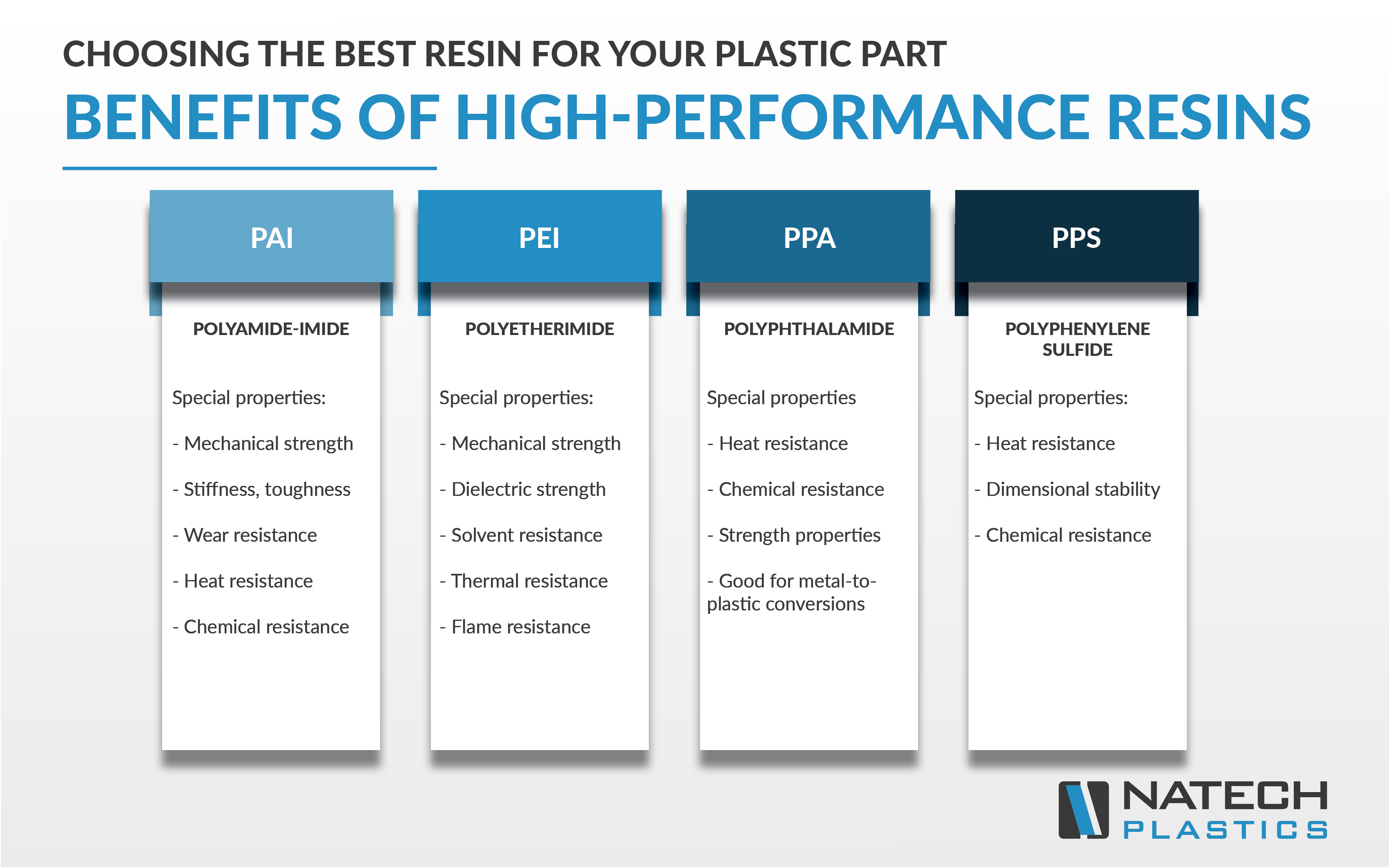
Polyamide-imide (PAI)
Commercial name: Torlon®
Special properties: Exceptional characteristics in mechanical strength, stiffness, toughness, wear resistance, heat resistance, and chemical resistance.
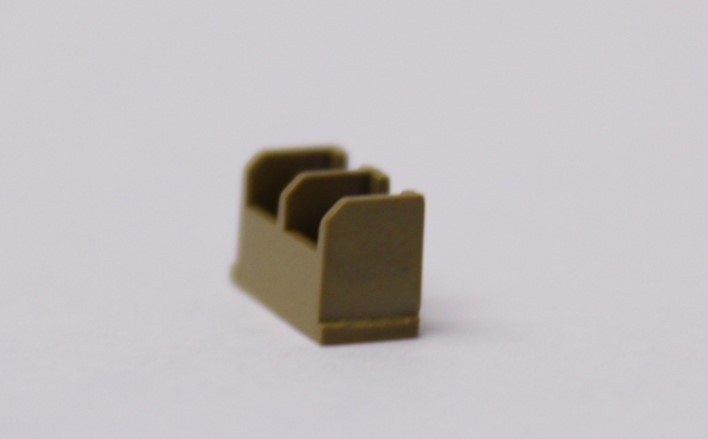
Natech has manufactured various applications in PAI. It has generally been used in electronics especially for metal-to-plastic conversions because of its temperature wear resistance, high thermal stability, and dimensional stability. According to Solvay, PAI offers “the highest strength and stiffness of any thermoplastic up to 275 °C (525 °F).”
Polyetherimide (PEI)
Commercial name: Ultem®
Special properties: Exceptional mechanical strength, dielectric strength, solvent resistance, thermal resistance, and flame resistance. It can be reinforced with glass fibers to enhance its properties.
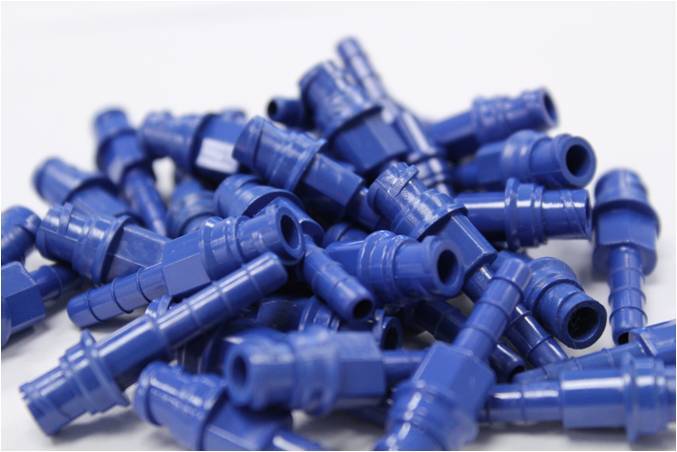
The example in the image above is a barbed female luer connector molded in PEI. It’s excellent dimensional stability and chemical resistance make it a good choice for certain medical applications.
Polyphthalamide (PPA)
Commercial name: Amodel®
Special properties: Good heat resistance, chemical resistance, and strength properties. Good choice for metal-to-plastic conversions. PPA can be reinforced with glass and used for high impact applications.
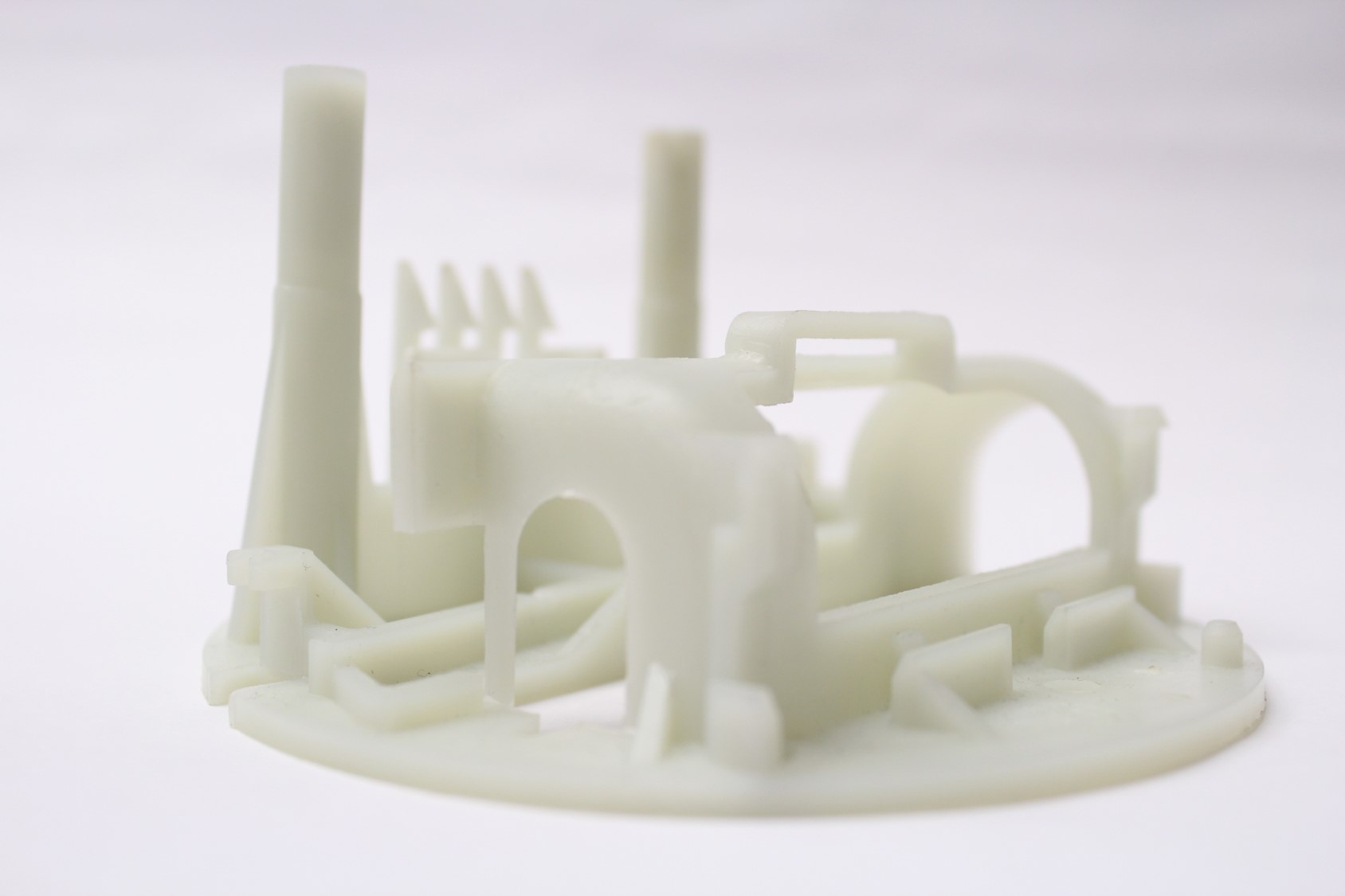
The component above is a 50% glass-filled PPA. It is part of a ruggedized electronics metal-to-plastic conversion. It gets exposed to sea water, so chemical resistance and strength is important.
Polyphenylene Sulfide (PPS)
Commercial name: Ryton®
Special properties: Known for heat resistance, dimensional stability, and chemical resistance. PPS is used for precision molding of applications exposed to high temperatures.
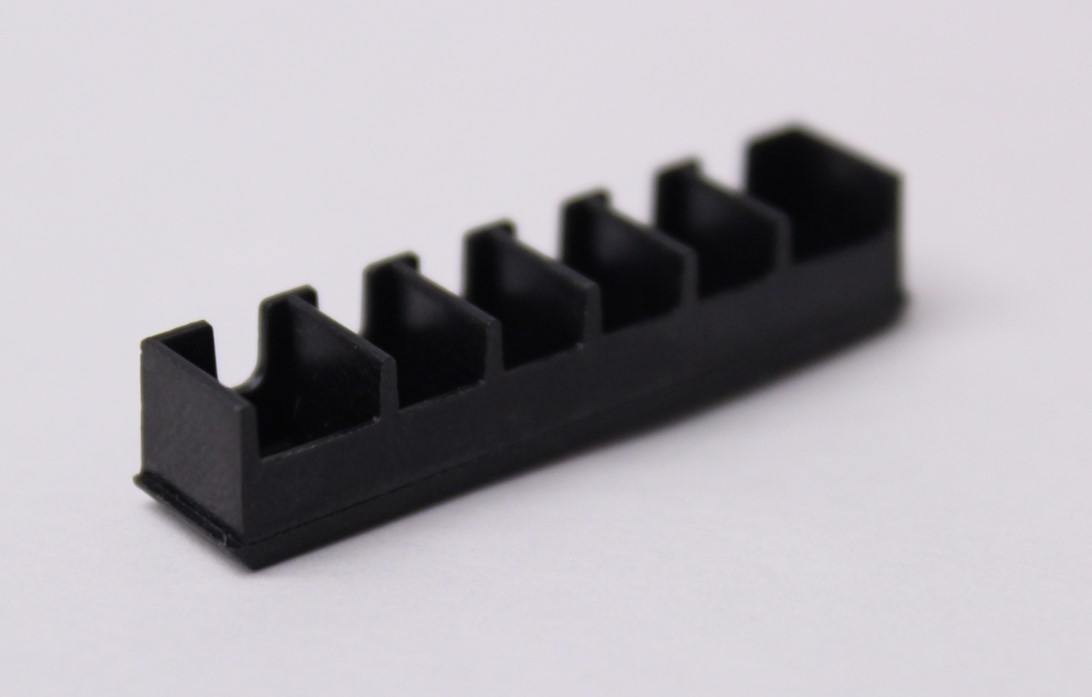
The example above is an arc barrier molded in Ryton®. The combination of heat exposure and dimensional precision makes PPS the best choice for this product. Solvay explains that Ryton can be “precision molded to tight tolerances and retain exacting dimensions when exposed to high temperatures and harsh end-use environments.”
If you want long-lasting, high-quality parts, selecting a high-performance resin that has the appropriate properties for your product is key. Speak to a Natech engineer to choose the best material for your application.
To speak to a Natech engineer about your program, schedule a time to meet with an engineer.
